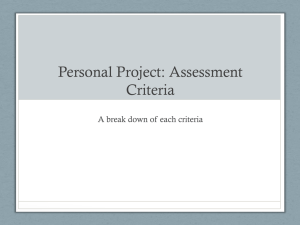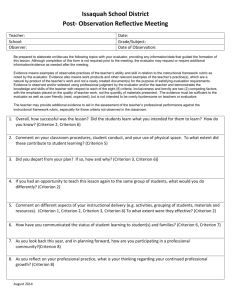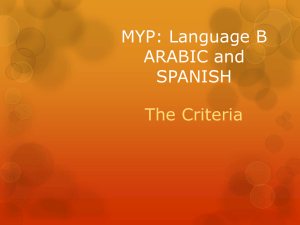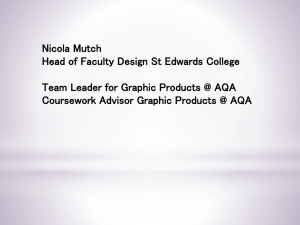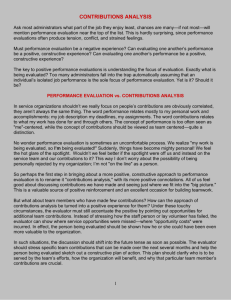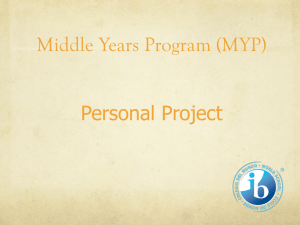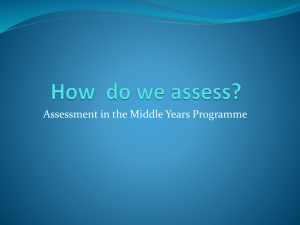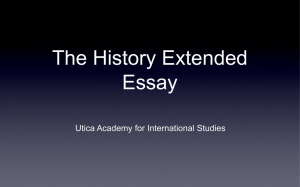New Evaluation System - East Valley School District
advertisement
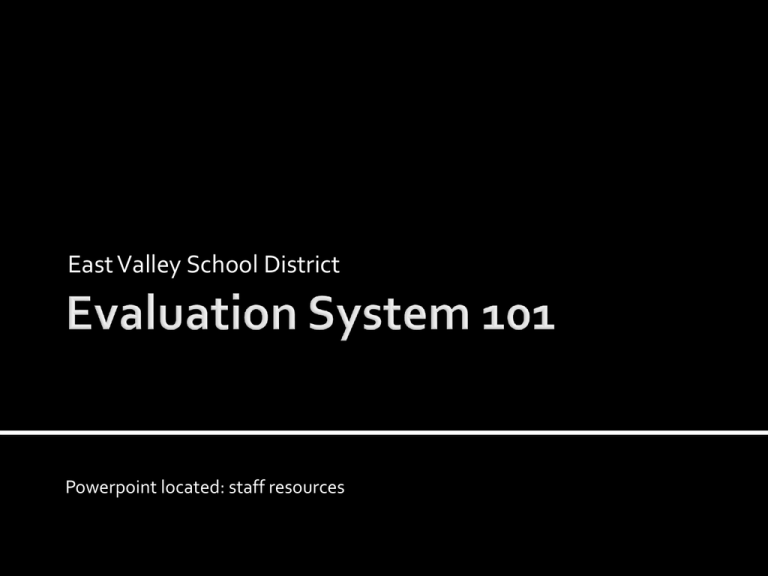
East Valley School District Powerpoint located: staff resources It is the belief of the East Valley Administrators that the new system is about growth, not “I gotcha”. Even though there will be a need to collect artifacts as evidence during the evaluation process, the district is not interested in collecting/creating a huge file of documentation. We understand the concerns that this change may bring about. Anytime a change of this magnitude occurs there is always a few bugs. The district is committed to working through the challenges in the system to help us all grow. All provisional classroom teachers are comprehensive. Any classroom teacher who has been unsatisfactory for the last 2 evaluations is comprehensive. By building, the remaining classroom teachers were placed in rank order by seniority (least senior at the top of the list) and evenly spread out for the next 4 years. All classroom teachers must be evaluated using the comprehensive process at least once every 4 years. Your building principal or evaluator may have already talked to you about your placement. If not this should happen soon. At any time during the year if an evaluator believes that a classroom teacher is struggling an evaluator can choose to move a teacher from a focused process to a comprehensive process. Classroom teachers who are being evaluated using the focused process must first select one of the 8 criterion as the criterion to be evaluated on and must be approved by the evaluator. If criterion 3, 6, or 8 are selected the teacher will be responsible for the student growth component associated with the criterion selected. If criterion 1, 2, 4, 5, or 7 is selected the teacher will need to choose student growth component 3 or 6. Classroom teachers who are being evaluated using the comprehensive process are responsible for all 3 of the student growth components, 3, 6, and 8. Observations will be conducted in a similar manner. There will be formal, informal, and walk through observations. The first formal observation will have a pre- and post conference. One formal observation may be unannounced. Even if you are being evaluated using the focus process, the evaluator will collect data for all criterion. Remember that not all criterion have components that are observable in the classroom. The student growth component of criterion 3 is about a small group. ie. only students below grade level, students with similar challenges. We recommend that you do not select a very small group size. The student growth component associated with criterion 6 is about a larger group. ie. an entire classroom. The student growth component associated with criterion 8 is about a larger group that includes students not in your classroom. ie. all students in a building in the 3rd grade, all students taking algebra. Goal and timeline. Goals need to be written as ‘smart’ goals. ▪ S – Specific ▪ M – Measurable, How will it be measured? ▪ A – Achievable, A challenge but possible. ▪ R – Relevant ▪ T – Time Bound, (Definite Beginning and End) RCW 28A.405.100 … multiple measures can include classroom-based, schoolbased, district-based, and state-based tools. Student growth in criterion 3 and 6 have two parts. Student growth in criterion 8 has one part. There is a student growth optional day (7.5 hrs) built into the contract. (Work with evaluator to develop and approve this plan and additional pay) There are two optional days (15 hrs) for a collaboration project built into the contract.
